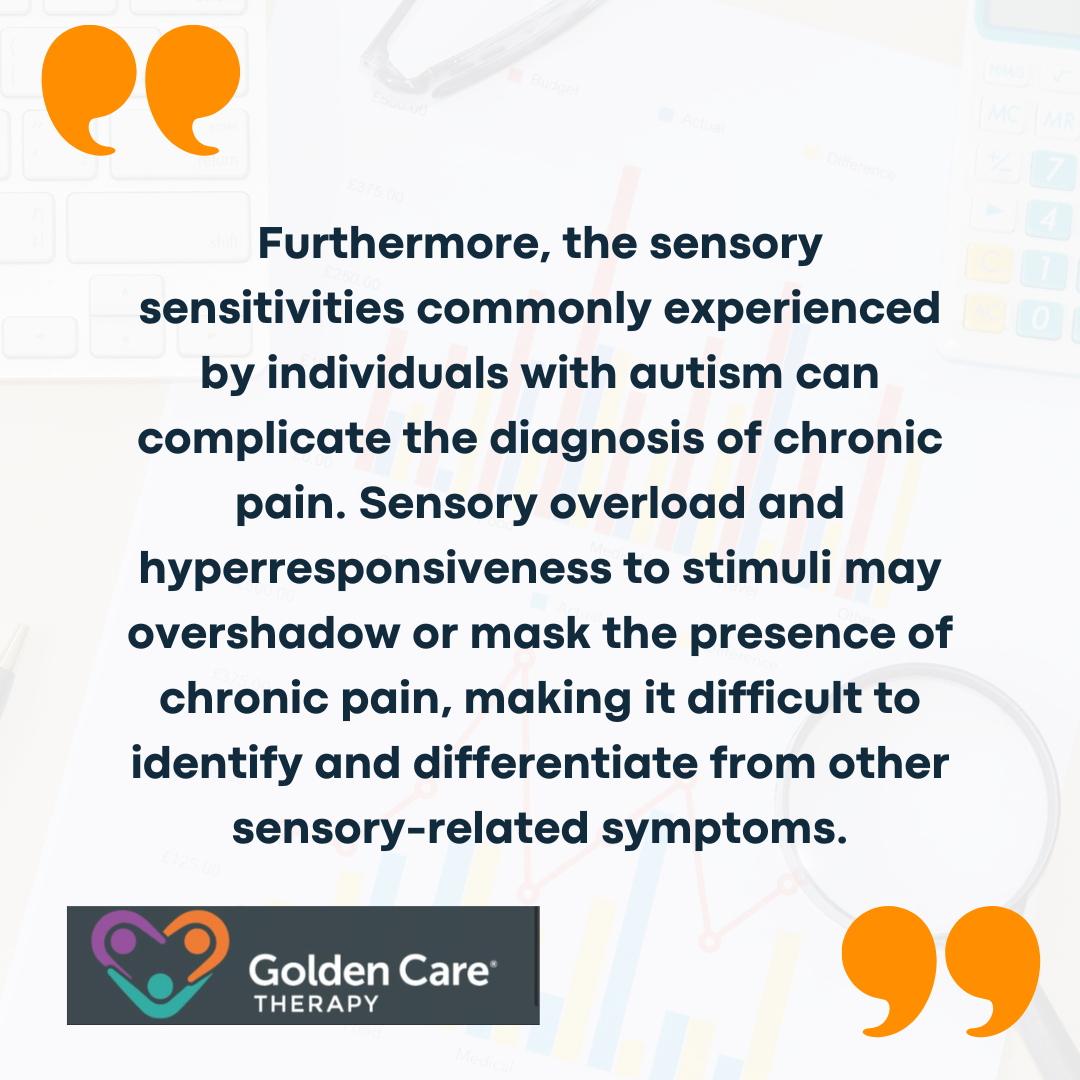Autistic individuals often experience a spectrum of other chronic health issues, which can occur alongside autism. Fibromyalgia is one such health issue that can have a significant impact on individuals with autism. The presence of chronic pain, heightened sensitivity, and other associated symptoms can further complicate the daily lives of individuals with autism.
The impact of fibromyalgia on individuals with autism can vary. Some individuals may experience more severe symptoms, while others may have milder manifestations.
The combination of autism and fibromyalgia can lead to increased challenges in managing daily activities, such as engaging in social interactions, attending school or work, and participating in recreational activities.

The Link Between ASD and Fibromyalgia
Exploring the relationship between autism and fibromyalgia reveals intriguing connections. Research findings have shed light on the association between these two conditions and their prevalence within the autistic population.
Studies have shown a significant association between ASD and fibromyalgia, providing valuable insights into the shared features and underlying mechanisms of these conditions. Individuals with ASD, particularly women, often exhibit a central sensitivity syndrome (CSS), which can manifest as fibromyalgia.
One study found that 21% of adults with autism had a diagnosed CSS, while another study reported that 40.6% of individuals with strong autistic traits also had fibromyalgia.
The presence of chronic pain is common in both ASD and fibromyalgia, as is an increased sensitivity to stimuli such as light, sound, and touch. This heightened sensitivity can be attributed to central sensitization, a condition where the central nervous system becomes more responsive to stimuli.

Prevalence in Autistic Population
The prevalence of significant autistic traits, fibromyalgia, and hypermobility is higher than expected among individuals with ASD. In a community-based population study, the prevalence rates were striking.
Approximately 63.4% of the study participants exhibited significant autistic traits, while 40.6% had fibromyalgia, and 43.7% showed hypermobility. Notably, higher rates of fibromyalgia, hypermobility, and autistic traits were observed among females, with non-binary and trans individuals demonstrating the highest rates.
The study also revealed a significant association between autistic traits and fibromyalgia. Dysautonomia, a condition characterized by autonomic nervous system dysfunction, emerged as a stronger predictor of this association compared to chronic pain.
Furthermore, hypermobility was found to partially mediate the relationship between autistic traits and fibromyalgia, suggesting the involvement of additional factors in this connection.
Another study confirmed the high prevalence of autistic traits in the population under investigation, with approximately 65% of participants scoring above the threshold for significant autistic traits. Autistic traits were particularly prevalent among younger females.
Additionally, autistic traits were significantly correlated with both fibromyalgia and hypermobility in the study population.
It is important to consider the overlapping features and associated challenges in diagnosing and managing ASD and fibromyalgia. The findings also emphasize the need for healthcare professionals to recognize the unique expressions of pain in autistic individuals.

Overlapping Features
Both ASD and fibromyalgia share several overlapping features. Chronic pain is common in both conditions, and individuals with ASD and fibromyalgia often experience increased sensitivity to stimuli such as light, sound, and touch. This increased sensitivity can be attributed to a phenomenon known as central sensitization.
Females, as well as non-binary and trans individuals, showed higher rates of fibromyalgia, hypermobility, and autistic traits.
It’s important to note that autistic individuals may express pain differently compared to neurotypical individuals. Autistic people may use terms like “discomfort” and “anxiety” to describe their pain rather than localizing it to a specific area.
Additionally, autistic individuals may experience internal features of pain, such as fatigue, poor sleep, and brain fog, rather than external features like widespread musculoskeletal tenderness or pain.
Challenges in Diagnosis
Diagnosing chronic pain conditions in individuals with neurodivergence, including autism, can be challenging due to several factors.
One of the main challenges is the communication and expression of pain. Autistic individuals may have difficulty articulating their pain experiences, leading to underreporting or misinterpretation of their symptoms. This can result in delayed diagnosis and inadequate pain management.

To overcome these challenges, healthcare professionals need to have a comprehensive understanding of the unique experiences and needs of individuals with neurodivergence. They should employ a multidisciplinary approach, integrating input from various specialists, such as neurologists, pain management experts, and mental health professionals, to ensure an accurate diagnosis and effective treatment plan.
Treatment Approaches
There are various treatment approaches that have shown promise when it comes to managing the symptoms of autism and fibromyalgia. While each individual’s needs may differ, two notable options worth exploring are L-carnitine supplementation and acupressure techniques.
L-Carnitine Supplementation
L-carnitine supplementation has garnered attention for its potential benefits in improving the severity of Autism Spectrum Disorder (ASD) symptoms.
A study conducted by researchers at the Institute of Chronic Illnesses in Silver Spring, Maryland, demonstrated significant improvements in children with ASD who received L-carnitine supplementation.
After three months of treatment, children who received L-carnitine showed improved scores on the Childhood Autism Rating Scale (CARS) and the Autism Treatment Evaluation Checklist. Higher blood levels of carnitine were also associated with improvements in hand muscle strength, cognitive scores, and CARS scores in children with ASD.
These findings suggest that L-carnitine supplementation may have a positive impact on various aspects of autism symptoms.
However, it is important to note that individual responses may vary, and consultation with a healthcare professional is advisable before starting any supplementation.
Acupressure Techniques
Another treatment approach that has shown promise in treating autism is acupressure techniques. One notable technique is NAET (Nambudripad’s Allergy Elimination Techniques), which aims to eliminate food sensitivities in individuals with autism.
A study funded by a foundation showcased encouraging results, with 23 out of 30 autistic children who underwent NAET treatment being able to return to regular schools after 100 treatments.
This highlights the potential efficacy of acupressure techniques, such as NAET, in managing autism symptoms.
These techniques involve applying pressure to specific points on the body to stimulate energy flow and restore balance. While further research is needed to fully understand the mechanisms and effectiveness of acupressure techniques in treating autism, some individuals and their caregivers have reported positive outcomes.
Both L-carnitine supplementation and acupressure techniques offer alternative approaches to managing the symptoms of autism and fibromyalgia. It is important to remember that treatment approaches should be tailored to meet the specific needs of each individual.
As always, consulting with healthcare professionals who specialize in autism and fibromyalgia can provide valuable guidance and help determine the most suitable course of action.
Research continues to shed light on the neurological basis of sensory issues in autism, offering hope for more targeted and effective therapies in the future. By recognizing and addressing sensory processing difficulties, we can improve the quality of life for individuals with autism and their families. If you’re seeking specialized ABA therapy in New Jersey, Indiana, Georgia, and New York, Golden Care offers comprehensive services tailored to meet the unique needs of each individual. Contact us to learn more or book a consultation today.
Sources:
https://www.moregooddays.com/post/fibromyalgia-and-autism
https://www.lidsen.com/journals/neurobiology/neurobiology-07-01-155



